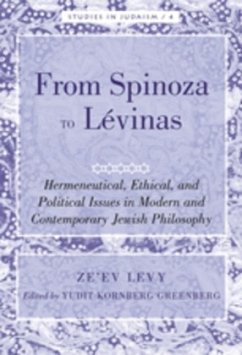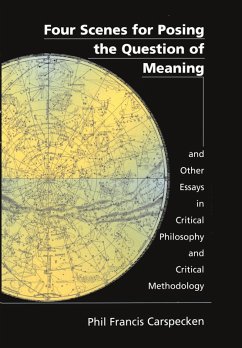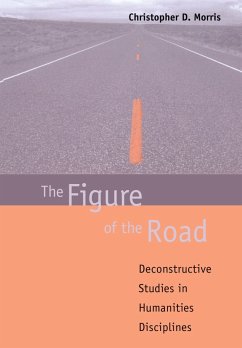
Evolution, History and Destiny
Letters to Alain Locke (1886-1954) and Others
Herausgegeben: Rudnick, Hans H.
Versandkostenfrei!
Versandfertig in 6-10 Tagen
72,95 €
inkl. MwSt.

PAYBACK Punkte
0 °P sammeln!
Presented in an epistolary form addressed mainly to the African American philosopher Alain Locke (1886-1954), evolution, history and destiny constitute the main themes of this book. Destiny, the controlling theme, is defined as an ideal of transcendent unity toward which a people strives in successive generations. Destiny includes four modalities: the ethnic, the national, the world, and the cosmic. Destiny is both immanent and transcendent, the one pertaining to the actual world, the other, to the ideal world. Part I focuses on the first three modalities, devoting special attention to the eth...
Presented in an epistolary form addressed mainly to the African American philosopher Alain Locke (1886-1954), evolution, history and destiny constitute the main themes of this book. Destiny, the controlling theme, is defined as an ideal of transcendent unity toward which a people strives in successive generations. Destiny includes four modalities: the ethnic, the national, the world, and the cosmic. Destiny is both immanent and transcendent, the one pertaining to the actual world, the other, to the ideal world. Part I focuses on the first three modalities, devoting special attention to the ethnic experiences of Africans/African Americans, their history, identity, and appellations, including «African American,» «Black,» «Negritude» and the novel appellation, «Africantude.» Although focusing on the experiences of Africans and African Americans, the destiny model is applicable to all people. Another novel term explored is «Destinicity,» a synthesis of both the destiny and ethnic ideals of a people. In Part II, the emphasis is on the collaborative works of the author and Dr. Manohar A. Tilak, a chemist. Here the cosmic mode, the physical-biological universe, is described as having undergone unique phases of evolution: robotic evolution is now occurring and will give rise to new artificial «beings» to which Destinicity ethics are applicable.












